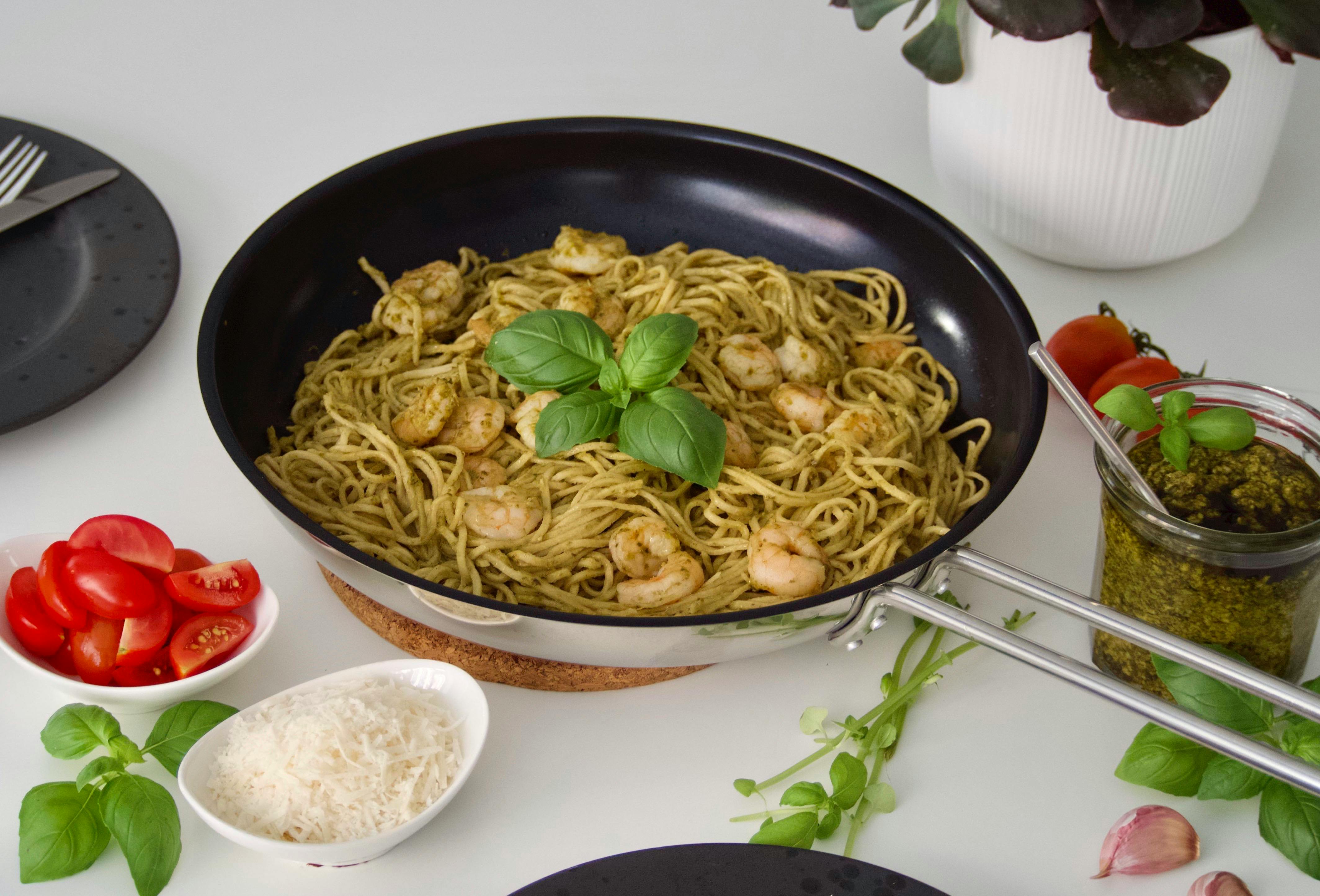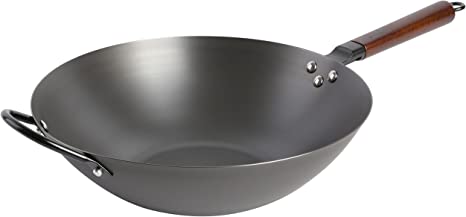Expert Recommendations: Best Oil for Seasoning Wok

A well-seasoned wok is a chef’s best friend, allowing for even cooking and ensuring that your dishes come out perfectly every time. But what oil should you use to season your wok? With so many options available, it can be tough to know which one will give you the best results. In this blog, we will take a deep dive into the world of best oil for seasoning wok. We’ll explore the role of oils in seasoning and why certain oils are preferred over others for handling the highest heat. We’ll also discuss the importance of smoke point when choosing an oil and provide expert recommendations for the best oils to use. Finally, we’ll highlight some oils that should be avoided when seasoning your wok. So whether you’re a seasoned pro or just starting out, read on to learn everything you need to know about choosing the best oil for seasoning wok.
Understanding the Role of Oils in Seasoning Woks
Different oils play a crucial role in the seasoning process of woks, impacting their flavor and heat distribution. They create a protective coating that prevents food from sticking and extends the lifespan of the wok. The seasoning process involves layering a layer of oil to form this protective coating. When it comes to choosing the best oil for seasoning wok, it’s important to consider their smoke point. Oils with high smoke points, such as sunflower oil and flaxseed oil, are ideal choices as they can withstand the high heat required for seasoning. Additionally, neutral oils like sesame oil and unrefined oils provide a distinct flavor to the seasoned wok. Overall, there’s a wide variety of oils available for seasoning a wok, with each offering its unique benefits.
 | (Riverlight) River Light Iron Frying Pan, Extreme Japan, 10.2 inches (26 cm), Induction Compatible, Made in Japan, Wok |
Why Certain Oils Are Preferred for Seasoning
Certain oils are preferred for seasoning woks due to their specific characteristics. For instance, oils like peanut oil and avocado oil have high smoke points, making them ideal for seasoning woks as they can withstand high heat without breaking down. On the other hand, oils with neutral flavors, such as canola oil, allow the natural flavor of the food to shine through during cooking. Additionally, the choice of oil can enhance the heat retention of the wok, ensuring even distribution of heat. Using oils with high smoke points also prevents the oil from breaking down and forming a sticky residue during high-heat cooking. In conclusion, the type of oil used for seasoning woks plays a crucial role in achieving optimal results.
The Importance of Smoke Point in Choosing Oil
The smoke point plays a crucial role in the selection of the best oil for seasoning wok. It refers to the temperature at which the oil starts to smoke, indicating degradation. Oils with high smoke points, such as peanut oil, are ideal for wok seasoning as they can withstand high temperatures without breaking down and altering the flavor of the oil. By choosing oils with high smoke points, the seasoning process becomes effective, and the wok remains non-stick. On the other hand, oils with low smoke points, like olive oil, may develop an undesirable flavor when used for wok seasoning. Understanding the smoke point and flavor of different oils helps achieve optimal seasoning results. So, when selecting oils for seasoning a wok, considering the smoke point is essential for successful and flavorful seasoning results.
Top Recommended Best Oil for Seasoning Wok
When it comes to seasoning your wok, there are several top recommended oils that can help you achieve the best results. Soybean oil is a popular choice due to its high smoke point and neutral flavor. It allows for effective seasoning without overpowering the taste of your food. Another great option is peanut oil, which not only has a high smoke point but also helps in creating a non-stick coating on the wok. Canola oil, known for its health benefits, is often used for seasoning woks. Lastly, grapeseed oil with its high smoke point and healthy properties is another excellent choice for high smoke point oils. These oils, including soybean, peanut, canola, and grapeseed, ensure that your wok is well-seasoned and ready to cook a wide variety of foods.

The Advantages of Soybean and Peanut Oil
Soybean oil and peanut oil offer numerous advantages for seasoning woks. With a high smoke point, soybean oil can withstand the intense heat required for wok seasoning without breaking down. It also has a neutral flavor, which allows the natural taste of the food to shine through. Additionally, soybean oil provides health benefits, making it a great choice for those conscious of their well-being. On the other hand, peanut oil is known for its high smoke point and ability to create a protective layer on the wok. This layer enhances the wok’s non-stick properties, making it easier to cook and clean. Both soybean oil and peanut oil are versatile options suitable for various types of wok cooking. With their impressive qualities, these oils are top choices for seasoning and maintaining the quality of your wok.
Canola and Grapeseed Oil: A Healthy Choice
Canola and grapeseed oil are both healthy and effective choices for seasoning a wok. Canola oil is known for its neutral flavor, high smoke point, and numerous health benefits. Similarly, grapeseed oil offers a neutral flavor, high smoke point, and a range of health benefits. Both oils create a protective coating on the wok, preventing food from sticking and ensuring even heat distribution. Additionally, canola and grapeseed oils are able to withstand high temperatures without breaking down, making them ideal for wok seasoning. Not only do these oils provide functional benefits, but they also offer health advantages, making them a top choice for seasoning a wok.
Oils to Avoid When Seasoning a Wok
When it comes to seasoning a wok, there are certain oils that should be avoided. While olive oil is great for other cooking purposes, it is not ideal for seasoning a wok. This is because olive oil has a low smoke point, which can lead to burnt food and an unpleasant flavor during the seasoning process. Similarly, oils like avocado oil may not be suitable for seasoning woks due to their unique flavor profiles. Oils with low smoke points have a tendency to break down and form sticky residues, affecting the non-stick properties of the wok. To ensure successful wok seasoning, it’s best to avoid oils with low smoke points.
 | Babish Carbon Steel Flat Bottom Wok and Stir Fry Pan, 14-Inch |
The Case Against Using Olive Oil
When it comes to seasoning a wok, olive oil may not be the best choice. This is due to its low smoke point, which can lead to a burnt flavor and compromise the seasoning process. Instead, opting for oils with high smoke points like peanut oil or soybean oil can result in better wok seasoning results. These oils are less likely to break down and form sticky residues on the wok, ensuring a smoother and more effective seasoning process. Understanding the limitations of olive oil is crucial in choosing the right best oil for seasoning wok. By using oils that can withstand high temperatures without compromising flavor or creating sticky residues, you can achieve the perfect seasoning for your wok.
Is Avocado Oil Suitable for Seasoning a Wok?
Avocado oil may not be the best choice for seasoning woks. Its lower smoke point compared to oils like peanut and soybean oil may not withstand the high temperatures required for successful wok seasoning. While avocado oil can be used for other cooking purposes, consider oils with higher smoke points for seasoning woks.
What is the best oil to use for seasoning a wok?
The best oil for seasoning wok is a high-smoke-point oil like vegetable oil, canola oil, or peanut oil. These oils can withstand the high heat required for seasoning and create a durable, non-stick surface on the wok for better cooking and easy cleaning.
Frequently Asked Questions
What oil to use for seasoning?
To achieve the best seasoning for your wok, opt for an oil with a high smoke point, like vegetable oil, grapeseed oil, or seasoning oil. Avoid oils with low smoke points, such as olive oil, as they may burn and leave a bitter taste. Apply a thin layer of the chosen oil and heat on high for 10-15 minutes, repeating until a non-stick coating forms.
Conclusion
To achieve a perfectly seasoned wok, it is crucial to choose the best oil for seasoning wok Oils with high smoke points, such as soybean and peanut oil, are preferred for seasoning. These oils can withstand high temperatures without burning or leaving residue, resulting in a smooth and non-stick surface. Canola and grapeseed oil are also excellent choices as they offer health benefits and have high smoke points. However, it’s important to avoid using oils like olive oil, which have low smoke points and can leave a sticky residue on the wok. Similarly, avocado oil may not be suitable for seasoning due to its lower smoke point. By selecting the appropriate best oil for seasoning wok, you can ensure your wok remains in top condition and delivers exceptional cooking performance.



